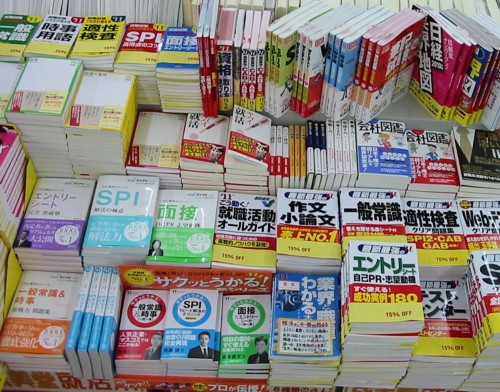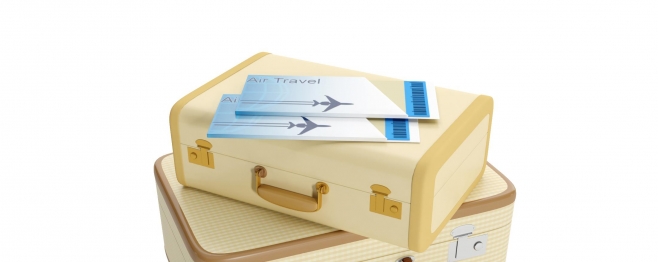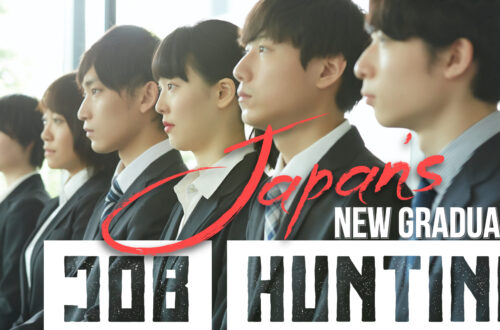
Job Hunting in Japan Part 2
OK so we are back to the long road of job hunting in Japan. Following on from the previous article we are have gone to the company presentation and hopefully our Entry Sheet has passed. The next step being the ultra-fun:
Written Exam
So you have made it through the first stage and it has only taken you around 4 months. The next step will often be a written exam or first interview, depending on the company the order is different and some companies leave out the written exam all together (my company and Tokyo Joe’s company both had a written exam but Joe’s didn’t).
There are various kinds of written exams, personality tests, general knowledge test and specialist knowledge tests. The most famous of all of these is the SPI which stands for ‘Synthetic Personality Inventory’ which is a general knowledge test and the standard used by 1000s of companies. The SPI test generally has a math, language (Japanese and English) as well as personality section, but there are variations depending on who is taking the test (university grad, college grad etc.) and company that is using it. In essence it used to test not just a candidate’s academic level but also their general knowledge and character too. The most current version of the test is SPI3 which was introduced in 2012. The test can be done in both a test centers or on-line.
These tests can actually be pretty demanding and there are a LOAD of books, websites and mobile applications devoted to just getting prepared for them. Often at Universities you will see hordes of students combining forces to tackle the tests. One person who is good at maths will do that section for everyone in the group, then another person will do the language section etc. Maybe not the most ethical way to do it, but definitely easier than trying to do it solo.

Some light reading? All these books are on the topic of the job hunting process such as the SPI tests.
The personality exam is important to see if you will ‘fit’ in to their company way of thinking. Are you a positive team player or a depressed loner who is going to cause trouble? Also are you motivated and a keen worker or just wanting to slack off and coast, I am looking at you kyuuryou dorobou (wage thief – someone who doesn’t do any work or contribute but still gets paid anyway).
The reason for the exam being so general is that as mentioned earlier you (and your company) probably don’t know exactly what department you will enter at the company so want to know your overall skill level for math, literature etc. Also people are often moved across departments in Japanese companies , so they want to know that you are capable of working in multiple areas should the need come to move you round. If you company indeed does have this written test before the first interview, then the depressing this is that 9 out of 10 applicants are cut out at this stage (ouch!) according to this Japanese job hunting help site.
Interview
The day has finally come. After months and months of sweat and tears the day of reckoning is upon us and the end of the long long road is in sight. Well….not exactly. The first interview while extremely important 99% of the time is not going to result in you getting the job right there and then. Also there is a high chance that the first interview won’t even be one to one, but a dreaded group interview. The saving grace though, is that the first interview will often follow a set pattern in the questions they ask you and won’t take that long. Most first interviews end within 20 minutes, though a bit longer if it is a group interview. Also depending on the company, there may be some group task that you must complete. Questions being very similar to what was asked in the Entry Sheet such as kiboudouki ( reasons for applying), as well as also giving you the opportunity to ask any questions yourself at the end.
If you do pass you will be informed either over the phone or via e-mail within a couple of weeks. If it takes longer than this it usually means you have failed or are a back-up and they are waiting to see if someone else will drop out before contacting you.
The second interview, some say is the most important. It will be much harder than the first and with a more senior member of staff. Rather than the relatively predictable questions that were seen in the first interviews these are a lot more in-depth questions asking what you want to achieve in the company, why you want to work in a specific department, if you stated it before in the Entry Sheet or first interview, or if not where you want to work and why etc. In my case the second interview lasted around 40 min to an hour and was always 1 v 1 or 2 company people v 1. In both cases I lost about 3 pounds of weight in sweat. Was pretty nerve racking.

Got a job hunting problem? Then twitter is your best friend apparently!
M asks what the difference is between the different interviews 1-3. Kay answers saying that the 2nd interview is the most important. While in the 1st interview you can kinda guess what you will be asked and the last interview is more small talk than anything else, most of the time in the 2nd interview you don’t know what you’ll be asked till the day and probably won’t be able to answer a few of the questions.
If you are very luck you have both passed and been given a job after your 2nd interview. If you are just lucky then you have passed and moved onto the FINAL interview (most companies have 3 interviews……yes 3 interviews on top of the Setsumeikai, Entry Sheet and written exam). Depending on who you listen to the final interview is either the easiest or the hardest of the 3. Logic tells you that if you have made it this far then the company has pretty much decided that they want to hire you and just want an even higher senior member (often the company president, OMFG) to give you a final once over.
If you just stay calm and regurgitate everything you have said in the last two interviews you are pretty much guaranteed to get the job. On the flip side it is the hardest interview in the sense that you will have an UNBELIEVEABLE amount of pressure. Less not forget that you have spent months leading up to this moment, put in a ridiculous amount of time and effort that could all be wiped away if you were to accidentally sneeze and fart during the interview (this is not talking from personal experience….however I would advise that you stay away from beans the night before). It is all essentially riding on keeping cool calm and collect in this last 20min interview (senior people are busy guys, so generally won’t be crazy long). Just think Fonzie and everything should be OK.
If you are not given the offer there and then at the end of the interview then you will be contacted relatively soon after the interview. The candidates have been slimmed down considerably by now and the company won’t want to risk losing you to another company.
YAY!! Hopefully you have been given a job offer and if you are a university student secured a place for when you finish university in March next year. Assuming everything has gone well the first few university students will have gained their placement around late May. That is right 10 months of bliss care free university life (the one good thing about the job hunting starting so soon?) though you will still have some preparation work or studying to do before you start (more on this another time, my company had lots of ‘e-learning’ to do before starting).
Or…..you have failed. Those 6 months have amounted to nothing…well if you look at it positively you have gained some experience and no doubt ‘grown’ as a person. But either way you won’t have a job and assuming you haven’t been applying to other companies at the same time (some people are that crazy) you are going to have to start all the way back at square 1, don’t pass go, don’t collect $200. You would be surprised how many people do actually have to do this.
According to a report by the Ministry of Health and Welfare for those who were job hunting during 2012-2013 (to graduate March 2013) 63.1% of the candidates had received an offer by October 2013. So what happens the remaining 44.9%? Well as there is still some considerable amount of time before their graduate and there will be some positions left at companies, they will have to start the entire process again with companies with positions still available. The obvious down side to this being that compared to before they will have a much more limited selection and in some respects the competition will be even fiercer. Though on the flip side the above process generally moves a LOT quicker. The report for 2012-2013 shows that by the time graduation has come round 93.9% of people will have received a job offer of some kind, however 30% will have go it from a job they didn’t initially intend/want to enter.
The worse situation for a Japanese university student to be in is to have graduated without a job offer, those remaining 6.1% (some students will even prolong their time at university for another year to avoid this). Many people in this situation, those that have graduated without a job, are referred to as syuushoku roujin the word roujin traditionally refereeing to a wandering samurai without a master to serve, syuushoku meaning finding employment. Sounds romantic, unfortunately it generally used negatively in Japanese. Most people who don’t find work will end you working part time in which case they are referred to a Furita (young people subsisting on part-time work) or if work isn’t your thing then you could become a NEET (young people not in education, employment or training). This is actually a word coined in the UK but is often used in the Japan press.

Graph from mid way through the 2012-2013 job hunting period. Years at the bottom going from March graduation year 2004-2013. The lines from bottom up showing the job offer % for the period of October, January, February and April (when work begins). 2010-2011 was not a good year…
Unfortunately going form either of these stages to a full time employee is very difficult for many Japanese students as they are not as desirable to companies. Though some may consider this a serious problem and it is often taken up in the news、especially a few years ago when the job offer rate was particularity low. However for some people being a Furita or NEET is a better alternative to being a Salaryman, even if society doesn’t feel the same way. You can find various people on the internet seeking advice because they want to quit their current full time Salaryman job and become a Furita. Also there was the drama Furita, iewokau (Furita, buy a house) where the main star in the drama is living as a Furita after quitting his job which he worked at for just 3 months after graduating. Furthermore the movie Ore wa Mada Honki Dashitenai Dake (with the rather rubbish official English title of ‘I’ll Give It My All… Tomorrow’) is about a person who quits their Salaryman job at 40 because they have had enough and want to become a Manga artist, though is working as a Furita till their big break. In both cases the main star isn’t particularly portrayed as having a ‘good’ lifestyle, though both productions highlight at the same time how mundane, dead-end and depressing the typical Salaryman life style can be. By the end of the drama and film it is virtually impossible to know know which ‘lifestyle’ they are actually saying is better.
The Japanese trailer for ‘I’ll Give It My All… Tomorrow’. Even if you can’t understand Japanese you probably get the idea that the star isn’t exactly being portrayed as someone to aspire to.
Wrap-up
So that has been a short (?) and general run down of the typical flow of job hunting in Japan for typical Japanese students who are applying to a Japanese company. I am sure I have put off almost everyone from every doing job hunting in Japan, apart from a few bad-ass peeps that like a challenge and spending their nights weeping into a pillow from the emotional roller coaster ride of that is Shuukatsu . TBH it is tough and often not fun. But if you are an English speaking foreigner (or Japanese person who has studied abroad) then you often have a big advantage at companies looking to expand their international sales or be more ‘global’ which is pretty much 80% of all companies now in Japan due to the shrinking of the domestic market in many sectors. Also being a foreigner who has already graduated from university there are some options available to use that many Japanese university students cannot use such as going through a recruitment company that makes the entire process much simpler.
We all here at WIJ under went this same job hunting process, jumped through all of the hoops mentioned above (I was told in my final interview that my exam mark was so bad that if I was Japanese I would have failed, Hurray for positive discrimination!). However by going to certain events and job fairs aimed at foreigners or following specific steps when applying to a company, then you can greatly reduce the time and hardship it usually takes to get a job. Also for the interviews and ES you can generally make a ‘system’ to so you can be as effective and productive as possible in the shortest amount of time.
Tokyo Joe has written a great article about how be a total boss at the Boston career forum, which is one of the many events specifically target at foreigners wanting to work in Japan. In the future we will touch on each of the areas mentioned above to tell you how we ourselves got through each stage and the various tricks we used!
Hope you enjoyed the article and if you have any comments or questions then I would love to hear them!
Stay sane people!




7 Comments
Mike
It’s official. I will never get a job in Japan…
wijapanc
Hi Mike!
Thanks for the comment and stopping by!
Haha yeah I think that is the general reaction. It is a pretty tough process but really rewarding too……assuming you get the job at the end.
If not then yeah, pretty damn horrible!
Andrei
This article brought back a lot of painful memories (the SPI test – aargh!). I hope part three deals with the whole training process once you actually start work: “manner” lessons, sitting through interminable lectures for hours on end, radio taiso, and of course having to write a report about it all at the end of each day. I’m getting hives just thinking about it all!
Great site, by the way. Keep up the good work!
wijapanc
Hey Andrei! Thanks a bunch for stopping by and the comment!
Haha yeah I think memories of job hunting in Japan can only be described as ‘painful’. I do hope to write another article down the line about the training you get when you enter a Japanese company.
Think our experinces are almost a mirror image! I used to hate them daily reports!!
Also really like your site too! Just had a look and full of great information. Good luck with your goal of 100km a week and hope this snow clears up soon!
Thanks again for the comment!
Risu Press
Heading to the Boston Career Forum this November, already nervous about the whole interview process. Tricky living here in Canada and never having gone through a Japanese interview before. Any advice? Concerned about trying to find a good fit amongst so many potential companies as well…
Great articles though : )
Cheers
Luke Palfreeman
Hi Risu Press! Thank you for the comment and visiting the site. Just remember that many of the other participants will also have not undertaken a Japanese interview before and travelling from afar, so don’t think you have any disadvantage! A great thing to do is to do some practice with a Japanese friend face to face or over skype (here is a great site to find language partners http://www.language-exchanges.org/) then go over the often asked questions http://shukatsu-mirai.com/shukatsu/interview100/ this will help you gain confidence.
For finding a good fit, I think it is the same with anything, you won’t really know until you know. Keep an open mind, do some research before going on any companies you have scheduled to interview with but also keep sometime to just browse the other companies and talk to the HR people. Just by talking to the people who already work there you can get a great feel of what the company is like!
More than anything else, be confident! You will do great and not matter what it will be a great experience and learning opportunity!
If you have any more questions let me know and good luck. Let us know how it goes.
Luke
Marcelo
Hi Luke, great post It is really helpful. Thank you very much!
Could you be kind enough to appoint me some book to help me in the job hunting and test? I would greatly appreciate it!